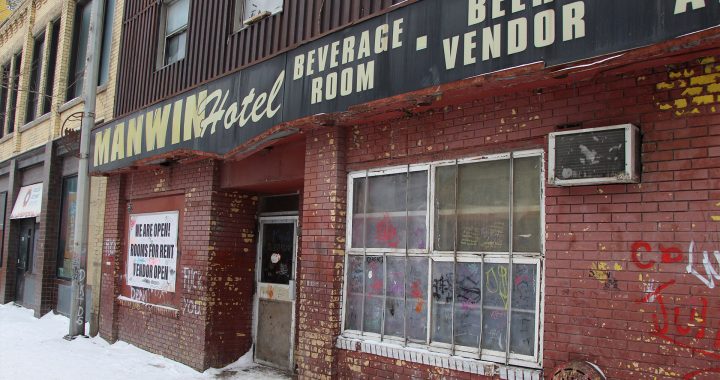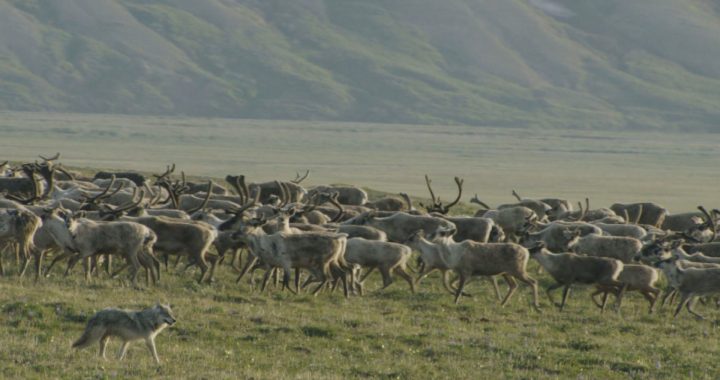Trina Roache
APTN National News
HALIFAX—Indigenous grassroots leaders say the Harper government’s anti-terrorism Bill C-51 won’t stop their opposition to the Energy East pipeline.
The proposed bill would give more power to law enforcement authorities and Canada’s spy agency to counter perceived terrorism threats.
Critics have raised concerns over aspects of the bill, including allowing police to execute “preventative” arrests if authorities suspect a terrorist plot “may be carried out.” Critics also argue that the bill, by criminalizing the promotion of terrorism, threatens free speech.
The bill also includes “interference with critical infrastructure” and economy as part of what could be constituted as a terrorist threat.
Indigenous activists wonder what that will mean for future protests and blockades of the proposed pipeline, which will cut through 180 First Nations.
“I think Bill C-51 represents how desperate this government is,” said Clayton Thomas-Muller, Co-Director of the Indigenous Tar Sands Campaign. “The extremes they’ll go to, to deal with the incredible resurgence and energy of Indigenous movements in this country. I’m not afraid of it. Absolutely not.”
The bill passed second reading in the House of Commons Monday evening with the support of the Liberal party.
At the same time Conservative and Liberal MPs stood to support the bill, over 100 people came out to Dalhousie University in Halifax to hear Indigenous leaders and activists talk about their plans to stop the Energy East pipeline.
Judy DaSilva, an Anishnabe activist from Grassy Narrows, told the audience about her fight against clear-cut logging. She knows how vital it is to protect water. Her community in northwestern Ontario lives with the effects of mercury poisoning from a nearby pulp mill.
DaSilva fears potential spills from the 4,600 km pipeline, which will stretch from the Alberta to New Brunswick. It will carry 1.1 million barrels of crude oil a day, increasing tar sands production, a corner stone in the Harper government’s economic plan despite the crash in oil prices.
The proposed anti-terrorism bill won’t stop DaSilva from protesting.
“We feel like the law coming out of parliament, it’s nothing to us,” said DaSilva. “To Indigenous people it’s nothing compared to the law of the creator. If we do direct action, we can’t have that fear of Bill C-51, we just got to have our feet, our moccasins, on the ground, to feel the power of mother earth, that’s who we’re protecting. The laws? I don’t understand them, I don’t believe in them, I don’t listen to them.”
Thomas-Muller points out since Harper gutted the Fisheries and Environment Acts, Indigenous rights play a key role in protecting land and water.
“Indigenous resistance is the last bastion against ravaging the environment,” said Thomas-Muller. “In New Brunswick, there’s now a moratorium against fracking. Direct action works it’s effective. There’s a lot of lessons to be learned from that struggle.”
Mi’kmaw activist Shelley Young was part of those fracking protests near the Elsipogtog First Nation. She wonders how it would have played out differently if the terrorism legislation had existed then.
“There would be many more of us in jail, many more of us attacked,” said Young.
The media images of burned-out RCMP cars and reports of violence didn’t reflect what it was like on the ground, said Young.
“It was a very positive thing, what you saw in the news, didn’t reflect what was happening there. We drummed, we laughed. It was beautiful,” she said.
The bill does allow for lawful protests. But whether it’s over fracking or pipelines, blockades can be seen by government as disrupting the economy or infrastructure.
Bill C-51 doesn’t define terrorism, and that’s one of the criticisms NDP leader Tom Mulcair has raised. He calls aspects of the bill vague.
Mulcair was in Halifax Monday and met with environmental groups and First Nations leaders to talk about how the bill will impact future protests.
“With regard to Peter MacKay our justice minister,” said Mulcair. “I asked him several times last week give me one example of what you mean when you say that you’re going to be going after these groups to disrupt them, what does that means concretely, they can’t give an answer.”
Harper said Indigenous groups are right in their concern over the proposed bill.
“The groups are correctly concerned that they could be in the crosshairs of Mr. Harper in this plan,” he said.
The NDP Leader said police already have the tools to fight security threats.
“Yes, we’re going to oppose this bill, we’re going to vote against it, we’re going to fight it every step of the way,” he said.
That could prove to be an uphill battle. With Liberal support, Bill C-51 passed second reading with a vote of 176-87 and will now go to the Steering Committee on Public Safety and National Security.
@TrinaRoache










